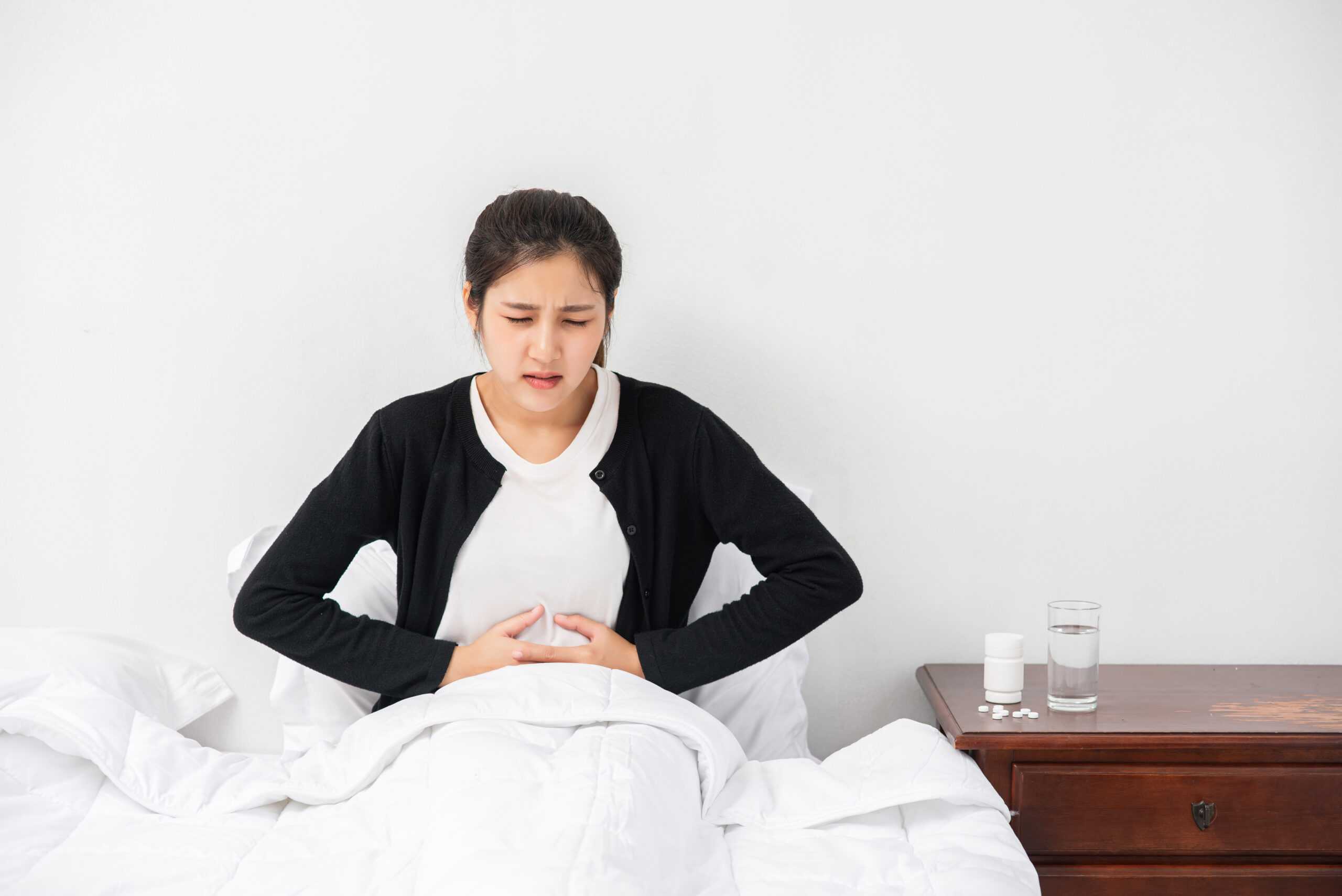Paps is a screening test to identify a cell’s possibility of developing invasive cancers. Your doctor or a gynecologist can also order the same Pap smear test if the doctor doubts the presence of human papillomavirus (HPV). Many researchers say that HPV infections resolve themselves, while severe cases may lead to cervical cancer in some women after 1 or 2 years. Furthermore, this blog will help you understand “can you get a Pap smear on your period? And how may menstruating affect your test results?
What is a pap smear?
A Pap smear, also called a Pap test, is the type of test that helps to detect cervical cancer in women. Detecting cervical cancer with the help of a pap test helps to have a better cure. It is a sign that there can be chances of developing cervical cancer in the future. Many doctors and researchers suggest that one should have a pap smear test at least 3 or 5 times after an age.
- To perform this test, your gynecologist, primary doctor, or general assistant may take a small sample of cells from your cervix. This sample is further sent for evaluation in the laboratory.
- If the test comes out to be “abnormal,” that means the body part is precancerous. In that case, your doctor will discuss the next step.
Why is the pap smear test done?
A Pap smear test acts as a screening test for cervical cancer. This kind of test is usually done in conjunction with pelvic examination. Suppose a woman is around 30 or above. In that case, the doctor may recommend her pap smear test and a test for human papillomavirus (HPV), a common sexually transmitted infection that causes cervical cancer. Sometimes, your doctor may suggest the HPV test instead of a pap smear test.
Who should get a pap smear test?
Many doctors and practitioners believe that pap smear tests should start after 25. It is because of the increasingly bad environment, air, or infections that can produce cancer and other major diseases. You are required to have a frequent test if:
- The result is positive for HIV.
- You recently had your chemotherapy or organ transplant and have developed a weak immune system, prone to many other harmful diseases.
If you are 25 years of age or above and you do not have any “abnormal test” against cervical cancer, your doctor may suggest you have one every five years. This test is for those between the ages of 25 and 65. The same condition applies to the HPV test every five years if the test is “abnormal” or negative.
HPV is the type of virus that causes warts and increases the chances of cervical cancer. Type 16 and 18 in the case of HPV is the common cause of cervical cancer. If you have a positive HPV test, that means you have cervical cancer.
Women over 65 who are negative for the pap smear test may stop having the test in the future. Also, you should get a regular pap smear test based on age, regardless of sexual activity.
Book Appointment for Best Gynecologist In India.
How is the pap smear test performed?

Pap smears can be a bit uncomfortable, but it is quite a quick and fast procedure. During the procedure, your doctor will tell you to lie on your back on the examination bed or table. You can spread your legs and feet with the support of an instrument called stirrups.
Now, your doctor will use a device called a speculum and will insert it into your vagina. This device will keep your vagina open and help the doctor easily access the entry to the cervix.
Now, your doctor will scrape a small sample of cells from your cervix. To take the sample, your doctor may use an instrument called a spatula, or spatula with a brush, and a device called cytobrush- which is the combination of spatula & brush.
- You may feel slight push or irritation while your doctor tries to scrap the sample of cells.
- After scratching the cells from your cervix, your doctor will keep them in the sample box and preserve the same to be tested in the laboratory.
- After the test is complete, you may feel little discomfort or a kind of cramping. There can also be chances that you may have little bleeding. You can ask the doctor if you notice such complications immediately after the test.
How do I need to prepare before a pap smear test?

To ensure that you do not feel any discomfort while having a pap smear test at the medical center, herein we have provided you with a few “simple to apply” advice, and these are:
- You should avoid any sexual intercourse, douching, spermicidal preparations, or use of any vaginal medicine at least two days before the final date of the test.
- The use of these substances may interfere with your skin and the cells or may wash away the abnormal cells.
Don’t schedule your Pap smear test if you are expecting menstruation. If you are menstruating, try to reschedule your date for the test someday after your periods are over.
Do not hush or rush while you are lying on the examination table for the test. If you feel tense, you may experience discomfort with the test or the use of instruments. It may produce any accident or scratch on your skin.
Also, do not take the pap smear test after eating or making your stomach full. If you have a full bladder, it will create some discomfort. Try to urinate or empty your bladder beforehand.
What are the two major types of results of a pap smear test?
After a pap smear test, you can have two major types of results, and these are:
If your pap smear test results are normal, there are no abnormal cells in your body. A normal result refers to a negative test. In such a condition, you probably do not need the test again within three years.
If the test result is “abnormal,” you are positive for the presence of cervical cancer. It means that there are abnormal cells in your cervix that can be precancerous. Furthermore, there are several other types or levels of abnormal cells, and these are:
- atypia
- severe dysplasia
- carcinoma in situ
- The mild- common type of “abnormality” of cells in case of a negative pap smear test
- moderate
Can you get a pap smear test on your period?
You will be thinking “can you get a pap smear on your period”. The answer is No, you cannot get Pap Smears During Periods. The presence of blood in your vagina will interfere with the cells and may hinder you from getting the exact or valid result, especially if you have a heavy flow.
Although spotting or little bleeding is often the consequence of a pap smear test, you should not schedule your test if you are menstruating. However, you can talk to your doctor and may reschedule your appointment.
Some doctors and practitioners suggest following the pap smear test after the cycle or about 9 to 20 days of the menstruation. Also, you should get a pap smear test whenever you feel it is right.
Try not to skip your appointment with your doctor because a pap smear test will give you the necessary information about your health.
Also Read: The Maximum Delay in Periods after taking Ipill.
What is the case in an emergency?

To proceed with the pap smear test, you must lie on your back on the examination table. Your doctor will insert a speculum into your vagina to keep it open for a few seconds. Then, your doctor will swab the cells from the cervix and collect the mucus or cells around the area. Now, your doctor will place the cells into the tight container and will send the same to the laboratory. It will give you the information regarding the results from the laboratory.
- Typically, your doctor will conduct a pelvic exam during a Pap smear if your doctor identifies any abnormality with your pelvic area.
- Depending on your menstrual flow, it can become physically challenging for the doctor to perform the test during menstruation.
- However, menstruation does not bring any change in the methods of the pap smear test.
- Also, Pap Smears During Periods may lead to a risk of infection or any false-negative result if you follow a pap smear test in case you are menstruating.
FAQ…..
Q1. Which doctor helps to perform a pap smear test?
Ans. Typically, a gynecologist performs a pap smear test. There can be any laboratory-based healthcare provider who is an expert in this procedure and may help you with this test.
Q2. Can I have sex before a pap smear test?
Ans. No, sex before a pap smear test is not recommended.
Q3. What if I had protected sex right before the pap smear test?
Ans. No, it is still not recommended to have a pap smear test under this condition.
Q4. How many days do I need to go without sex before a pap smear test?
Ans. You must not have sex at least 24 to 48 hours of the day before a pap smear test.
Q5. What to expect after a pap smear test?
Ans. You may feel a little cold sensation during the pap smear test because of the instrument inserted in your cervix. Some amount of bleeding or spotting is normal after the test. However, if it becomes heavier, you need to consult the doctor.
Q6. What can be the side effects of the pap smear test?
Ans. Bleeding, spotting, cervical scratch & cervical sensitivity (When the doctor tries to take the sample from the cervix), and yeast infection (only in rare cases) can be the common side effects of the pap smear test.
Conclusion –
There are varieties of things and behavior that may later affect your test result. It includes sex before the day of the test, douching, using any vaginal hygiene product at least two days beforehand, and any medically recommended products for your vaginal health. If you still had your pap Smears During Periodsthe results may lead to “normal.” In that case, your doctor may suggest having the test again every 3-days.
Source link



